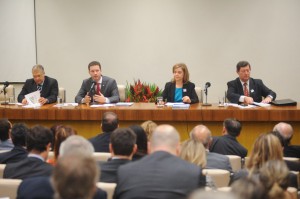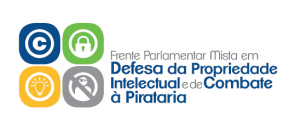
A group of federal deputies and senators instituted in the National Congress, at the end of May, the Mixed Parliamentary Front in Defense of Intellectual Property and Combating Piracy. The initiative has the support of several civil society entities, such as the ETCO-Brazilian Institute of Ethics in Competition, the National Confederation of Industry (CNI) and the Brazilian Association of Intellectual Property (ABPI). The Front brings together 206 deputies and 33 senators and is chaired by deputy Nelson Marchezan (PSDB-RS). "Many representatives of the private sector have been moving around this issue and we think it was time to take these discussions to Congress," said Marchezan.
The objective, according to the document signed by the parliamentarians, is "to debate and contribute with concrete solutions for the development and growth of the country, attacking subjective factors of the Brazilian cost, such as the lack of innovation and the legal insecurity that prevents investments" .
In the view of Front members, the difficulties that Brazilian businesspeople face in researching and developing new products are one of the causes of the high levels of counterfeiting and piracy in the country. They promise to stimulate mechanisms that facilitate innovation.
The work of the Front will also involve demanding greater involvement of the Executive Branch and civil society entities in initiatives that do not depend on a legal apparatus, such as campaigns to raise people's awareness of the various problems related to piracy. “Our great goal is that all Brazilians can understand the importance of intellectual property”, says Marchezan.
11 years to approve patent
Among the functions of the Executive that should be charged more by members of Congress are the exemption of amounts sent by Brazilian companies abroad to register patents in other countries and an improvement in the structure of the National Institute of Industrial Property (Inpi), so that requests of patent registration in the country gain agility. Today, the intellectual property registration takes, on average, 11 years to be approved. In countries like the United States and South Korea, it is possible to achieve this registration in less than half the time.
The greater movement of parliamentarians on the subject is already beginning to show results. In early June, the Senate passed a bill amending the rules to combat copyright infringement. The text is an initiative of the National Council to Combat Piracy and Crimes against Intellectual Property (CNCP), linked to the Ministry of Justice, and aims to give more power to the judge responsible for the process, facilitating the seizure and destruction of counterfeit goods. Before being sanctioned by the Presidency of the Republic, the bill must be voted on again in the Senate and the Chamber of Deputies.




